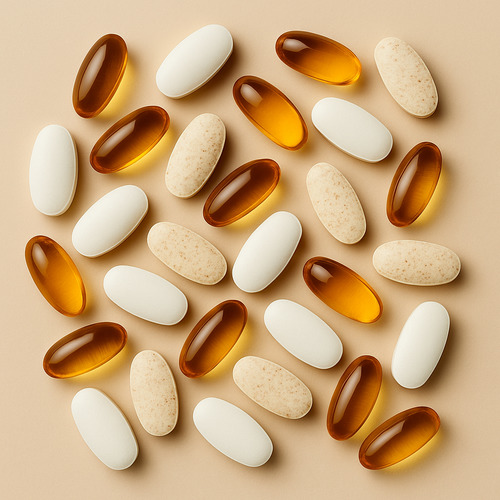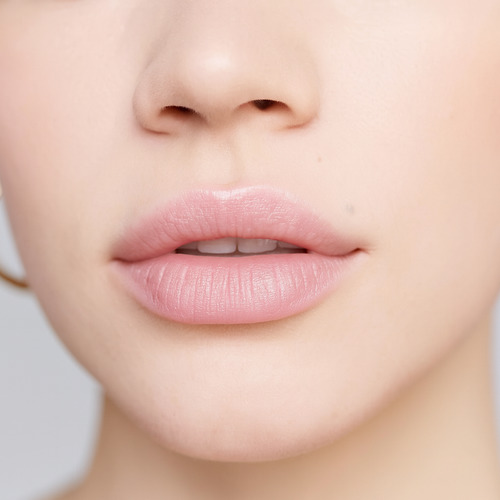Cracked lips can cause quite a bit of discomfort. There are many ways to treat them, but have you ever wondered what actually causes lip dryness? According to experts, the main reason lies in the biology of the lips themselves: they have relatively few sebaceous glands compared to other areas of the body, which makes them particularly prone to drying out.
In addition to internal factors, dryness and cracks can be worsened by environmental conditions. In this article, we’ll discuss the main causes of dry lips and share tips on how to protect and effectively treat them.
1. External Factors
Lips are constantly exposed to the environment — dry air, wind, and sudden temperature changes. Prolonged or intense exposure can seriously damage their condition.
What to do: Choose a high-quality lip balm and apply it regularly. The key to combating dryness is keeping your lips moisturized and protected, preferably with products free from harsh or drying ingredients.
Additionally, it’s helpful to use a humidifier in your bedroom during the cold season: this can increase air moisture and reduce lip dryness at night.
Additionally, it’s helpful to use a humidifier in your bedroom during the cold season: this can increase air moisture and reduce lip dryness at night.
2. Cumulative effects of ultraviolet radiation
Exposure to the sun without SPF on the lips can lead to actinic cheilitis — a precancerous condition characterized by dryness, flaking, and sometimes the formation of crusts.
What to do: To protect your lips, use a lip balm with SPF. Apply it daily, even in winter, before going outside, and remember to reapply regularly for continuous protection.
3. Constant licking of the lips
For those who often lick their lips, it’s important to know that saliva can cause persistent dryness. The lips are repeatedly exposed to saliva, which contains the enzyme alpha-amylase that breaks down the outer layer of the skin. Therefore, licking the lips does not moisturize them; on the contrary, it increases dehydration.
What to do: Try to avoid the habit of licking your lips. Regularly applying a high-quality lip balm throughout the day helps keep lips soft and hydrated, reducing the urge to constantly moisten them.
4. Irritating Ingredients
Some lip care products can cause dryness. For example, lipsticks, glosses, and balms sometimes contain ingredients that dry out the lips. Pay attention to menthol, phenol, and camphor—substances added for gentle exfoliation, a cooling effect, or to plump the lips. These products are great if you want to temporarily make your lips smoother or fuller, but on already dry or cracked lips, they can worsen the condition. Additionally, fragrances and preservatives in cosmetics can also trigger dryness and cracks.
What to do: If your product contains potentially drying ingredients, it’s better to temporarily stop using it and choose a gentler product specifically designed for dry and chapped lips. If giving up your favorite lipstick or gloss isn’t an option, create a protective barrier by applying a high-quality moisturizing balm beforehand.
5. Contact Dermatitis
Since many different substances come into contact with the lips daily, dryness may be caused by contact dermatitis. This means an allergic reaction can develop to lip care products or foods used around the mouth.
What to do: If you suspect that a lip balm or gloss is the cause, follow this approach. If the lips remain persistently dry despite regular moisturizing, it is worth performing a patch test to determine whether any ingredients are triggering an allergy. Allergic and irritating factors can be treated with steroid creams, which reduce inflammation and help restore the skin.
6. Vitamin deficiency

Although it is uncommon, for some people, cracked lips can be caused by internal factors. For example, a deficiency in vitamins—especially zinc—can lead to dryness and the formation of cracks. This problem can be easily detected with a blood test.
What to do: If you suspect that a vitamin deficiency is the cause, first consult a doctor or dermatologist for confirmation before using home remedies.
7. Cosmetics
Dry lips are often caused by the cosmetics you use, especially matte lipstick. Fragrances and alcohol in these products have a particularly negative effect on this sensitive area: they dry out and irritate the skin. What may not cause problems on your face can affect your lips more strongly, as the skin there is thin and lacks sebaceous glands.
What to do: Experts recommend avoiding matte lipstick in favor of glosses or products free of harsh chemical components. You should also avoid products with potential irritants, such as menthol or peppermint, as they can worsen dryness and irritation of the lips.
8. Breathing through the mouth
Have you noticed that your lips often crack when your nose is congested? This happens because in such situations we start breathing through the mouth, and a small amount of saliva constantly gets on the lips, causing irritation and cracks. Most often, mouth breathing occurs during sleep or when you have a cold.
What to do: Try to breathe through your nose as much as possible, especially when you are sick or if mouth breathing has become a habit. If you unintentionally breathe through your mouth at night, you can use special mouth strips — they stick to the lips and help prevent mouth breathing during sleep.
⸻
Dry and chapped lips are a common problem. The causes can vary: external factors such as cold, wind, or prolonged sun exposure, as well as internal factors—like allergies or vitamin deficiencies. To restore softness and health to your lips, it is important to regularly use a moisturizing balm and avoid products with irritating ingredients. If the cracks do not heal or become more pronounced, it is advisable to consult a doctor.
Read also: Why Has My Facial Skin Become Oily? 6 Main Causes and Effective Skincare Tips According to Dermatologists

